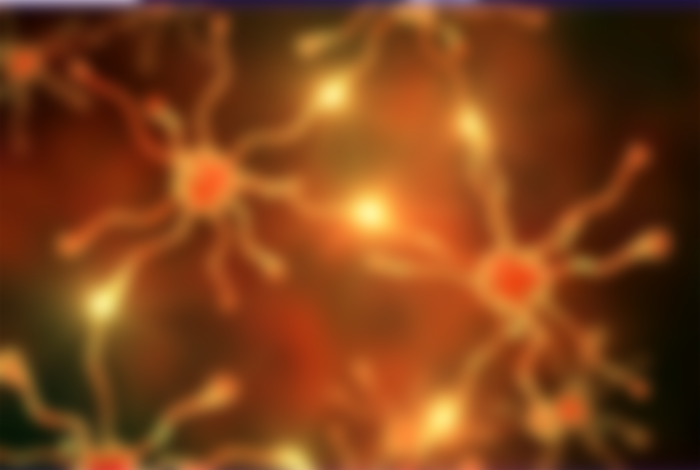Neuropsychological Conditions: What Are They and How Do They Affect Us
A list of the common disorders and their descriptions

Neural cells (neurons) connect with each other, forming synapses. (Picture: Canva Pro)
There are many different neuropsychological conditions that can cause a person to experience cognitive, emotional and behavioural changes. While each condition may present in a slightly different way, they all share one commonality — their effects on the brain.
Some neuropsychological conditions include:
Alzheimer’s disease — A progressive neurological disorder characterised by memory loss and confusion. As it progresses, individuals with Alzheimer’s may also become agitated and aggressive.
Dementia — A general term used to describe various disorders that lead to declines in mental abilities, dementia can result from diseases such as Alzheimer’s or stroke. Symptoms vary depending on the specific type of dementia but often include problems with thinking, memory and communication.
Stroke — A stroke occurs when a blood vessel in the brain bursts, preventing oxygen from reaching nerve cells that control movement or other aspects of thinking. Individuals who suffer a single small ischemic stroke may have few symptoms and a good prognosis. However, repeated strokes can lead to dementia or permanent loss of function in the affected part of the body.
Multiple sclerosis (MS) — A disease of the central nervous system that affects communication and movement. MS can cause brain lesions, vision loss or weakness in one part of the body, to name just some symptoms.
Parkinson’s disease — A neurological disorder that affects movement and balance. Common symptoms include tremors, stiffness in the limbs or spine, slowness of speech and problems with coordination.
Huntington’s disease — A neurodegenerative genetic disorder that causes involuntary movements and changes in thinking.
Amyotrophic Lateral Sclerosis (ALS) — ALS can lead to muscle weakness, twitching or stiffness in the arms, legs and trunk of the body, as well as slurred speech and difficulty swallowing.
Epilepsy — A condition that causes recurrent unprovoked seizures.
Migraine — A neurological disorder characterised by recurrent episodes of headache, often accompanied by nausea, vomiting and sensitivity to light.
Autism spectrum disorder — A developmental disability that can cause social, communication and behavioural challenges.
Attention-deficit hyperactivity disorder (ADHD) — A neurodevelopmental disorder characterised by problems with focus, hyperactivity, and impulsiveness. These symptoms usually begin during childhood, but the condition can continue into adulthood.
Bipolar disorder — A condition that causes people to experience extreme mood swings. These mood swings can cause people to feel very high and happy or very low and sad. People with bipolar disorder may also have problems with thinking clearly, making decisions, and controlling their impulses.
Aphasia — A neurological disorder that affects the ability to communicate. It can impact any aspect of communication, from speaking and understanding words to writing and reading. A person with aphasia may have difficulty finding the right words, speak in short phrases or sentences, or slur their speech. They may also have trouble understanding others when they are talking.
Dyslexia — A disorder that affects reading skills. It can make it difficult to read aloud, understand what one has read, and spell words correctly.
Dyscalculia — A learning disorder that affects a person’s ability to understand and use numbers. People with dyscalculia may have difficulty understanding simple math concepts, solving basic problems, or keeping track of time and money.
Dyspraxia — A disorder that affects movement and coordination. People who have dyspraxia may have difficulty walking, writing, and speaking.
Depression — A mental health condition that affects how a person thinks, feels and behaves. It can lead to a variety of emotional and physical problems. Depression is characterised by persistent low mood and loss of interest or pleasure in activities once enjoyed. There may also be symptoms such as poor concentration, indecisiveness, changes in appetite or sleeping patterns, fatigue and feelings of worthlessness or guilt.
Anxiety — A mental disorder characterised by excessive and uncontrollable worry.
Post-traumatic stress disorder (PTSD) — A mental health condition that can occur after a traumatic event. PTSD can cause distressing symptoms such as flashbacks, nightmares, and intrusive thoughts about the event. It can also lead to constantly feeling on edge, being easily startled, and avoiding places or activities that remind you of the trauma.
Schizophrenia — A condition that causes delusions, hallucinations and difficulty thinking. In some instances, it can lead to dangerous behaviour towards oneself or others.
The list above is not intended to cover every possible condition that affects the nervous system, though it gives a hint at just how wide the variety of the conditions is.
Disclaimer: I am not a doctor, and I do not provide any diagnostic information. Any concern about yourself and your loved ones should be discussed with a medical professional.
References
[1] https://en.wikipedia.org/wiki/List_of_neurological_conditions_and_disorders
[2] https://www.deque.com/blog/an-introductory-guide-to-understanding-cognitive-disabilities/
